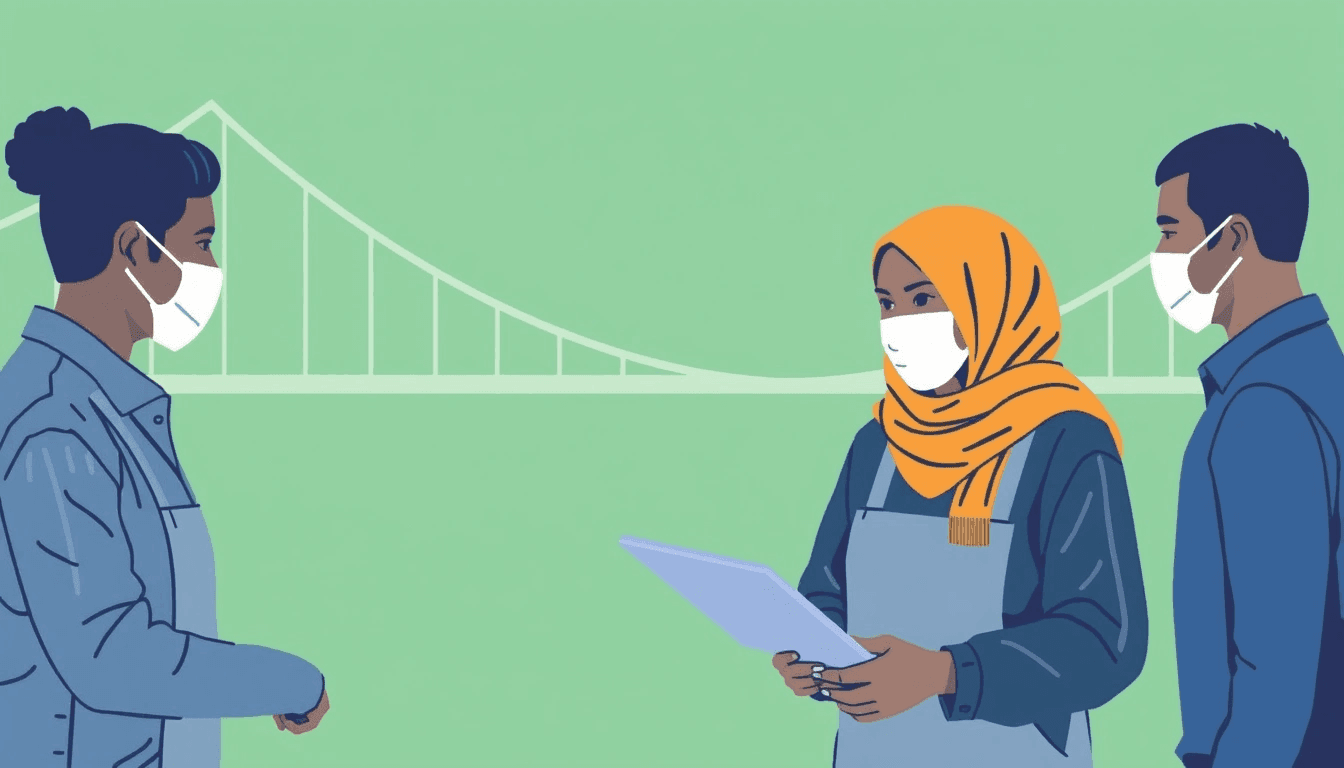

The global economy is grappling with persistent labor shortages, particularly acute in the logistics and care sectors. Simultaneously, nations worldwide host millions of refugees eager to contribute and rebuild their lives. It's a classic supply-and-demand imbalance that, when addressed strategically, offers a powerful win-win: filling critical workforce gaps while fostering social and economic integration. The emerging solution? Comprehensive programs that equip refugees with essential language skills, vocational training, and verified identity documentation, leading to significantly higher employment rates in these vital industries.
For years, both the movement of goods and the provision of compassionate care have faced unprecedented strain. The logistics sector, reeling from the e-commerce boom and recent supply chain disruptions, desperately needs everything from HGV drivers and forklift operators to warehouse managers and last-mile delivery personnel. Meanwhile, the care sector, battling an aging global population and post-pandemic burnout, faces a chronic shortage of nurses, carers, and support staff, jeopardizing the continuity of essential services.
What's clear is that simply having people available isn't enough. Successful integration requires a multi-faceted approach. At its core, this involves three critical pillars: language proficiency, vocational skills acquisition, and the presentation of verifiable identity documentation. Without these, refugees often face insurmountable barriers to legal employment, regardless of their prior experience or willingness to work.
"We've seen firsthand that investing upfront in language and sector-specific training pays dividends," says Maria Rodriguez, Director of the Skills for Integration Program, an initiative supporting refugee workforce development. "It’s not just about a job; it's about safety, effective communication with colleagues and clients, and genuine integration into the community."
Driving Logistics Forward
In logistics, the demand for skilled labor is immense. From operating complex warehouse management systems to navigating intricate delivery routes, proficiency in the local language is paramount for safety and efficiency. Vocational courses designed in collaboration with industry leaders, such as the Global Logistics Alliance, are proving instrumental. These programs often cover:
- Forklift operation and certification
- Warehouse management best practices
- Digital inventory systems
- Driving licenses and regulations for commercial vehicles
For instance, a recent pilot program in Germany, in partnership with major logistics firms, reported a 78% placement rate for refugees who completed a six-month intensive course focusing on German language and certified warehouse operations. Participants, many of whom had no prior formal qualifications recognized in the EU, gained Level 2 NVQ equivalent certifications, directly addressing a critical skill gap.
Nurturing the Care Sector
The care sector, perhaps even more so, hinges on effective communication and empathy. Language skills are non-negotiable for understanding patient needs, collaborating with medical teams, and adhering to strict health and safety protocols. Beyond language, vocational training focuses on crucial care competencies:
- First aid and basic life support
- Personal care assistance (hygiene, mobility)
- Medication administration protocols
- Understanding patient rights and safeguarding
Organizations like the Care Sector Workforce Initiative have established accredited programs specifically for refugees. These often include a significant clinical placement component, allowing participants to gain practical experience under supervision. "The human element is central to care," states Dr. Anya Sharma, CEO of a leading care provider. "Our refugee staff, often having experienced hardship themselves, bring an incredible level of compassion and resilience. With the right training, they become invaluable." A recent study by the International Organization for Migration (IOM) highlighted that care programs incorporating robust language training and cultural orientation saw a 90% retention rate after two years, significantly higher than the sector average.
The Unsung Hero: Identity Documentation
While language and skills are vital, the often-overlooked linchpin for legal employment is verified identity documentation. Without it, employers face significant compliance risks, and refugees remain in a bureaucratic limbo. Governments, in collaboration with NGOs and international bodies like the UNHCR, are streamlining processes for refugees to obtain legal work permits and identity papers. This includes:
- Expedited asylum claim processing
- Simplified identity verification procedures (e.g., biometric data where appropriate)
- Clear pathways to obtaining national insurance or tax identification numbers
These administrative efficiencies are crucial. As one employer noted, "We want to hire, but we must operate within the law. Clear, verifiable documentation removes a huge barrier for both parties."
The outcome of these integrated efforts is undeniable: higher employment rates in supported cohorts. Studies from the World Economic Forum indicate that refugees participating in such structured programs are up to 40% more likely to secure sustainable employment within 12 months compared to those without access to similar support.
This isn't merely a humanitarian endeavor; it's sound economic strategy. By investing in language, vocational training, and administrative clarity, societies can unlock a vast, motivated talent pool, strengthening critical sectors and fostering vibrant, inclusive economies. It's a testament to the power of targeted intervention, turning a perceived challenge into a profound opportunity.

About Harleen Kaur Bawa
Harleen Kaur Bawa is a licensed immigration attorney specializing in Canadian immigration and Indian services. With extensive experience in family sponsorship, Express Entry, refugee claims, and OCI services, she has successfully helped hundreds of clients navigate complex immigration processes.
Harleen holds degrees from York University - Osgoode Hall Law School and the University of Toronto, and is certified by the Law Society of Ontario and the Immigration Consultants of Canada Regulatory Council. She is committed to providing personalized, professional legal services to help clients achieve their immigration goals.
Related Articles

UK Intensifies Student Sponsor Checks: Tougher Sanctions, Student Verification Now Crucial
UK tightens student visa compliance for institutions. Discover stricter audits, penalties & crucial steps for international students to verify sponsors.

Navigating the Global Talent Maze: Translating Diplomas and Enduring Consular Waits for Employer-Led Entry
Master the global talent hunt. Understand employer-led immigration hurdles: diploma validation, lengthy visa waits, and variable processing by region impacting international hires.

Ongoing Consultations with Provinces Shaping National Policy Landscape
Federal-provincial consultations in Canada aim to forge a national strategy for economic recovery, climate, & healthcare. Explore how this will redefine intergovernmental cooperation.